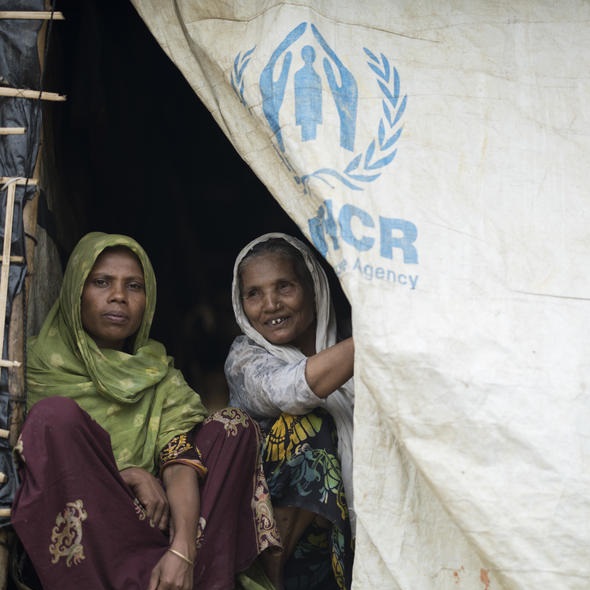Evaluation of Community-Based Protection and Solutions Programme in Priority Areas of Return and Re-integration in Afghanistan, Household Survey - December 2021
Afghanistan, 2021
Get MicrodataIdentification
UNHCR_AFG_2021_PARR_December_HH_v2.1
Evaluation of Community-Based Protection and Solutions Programme in Priority Areas of Return and Re-integration in Afghanistan, Household Survey - December 2021
| Name | Country code |
|---|---|
| Afghanistan | AFG |
Other Household Survey [hh/oth]
Since 2017, the United Nations High Commissioner for Refugees (UNHCR) has been supporting durable solutions aimed at returns and reintegration through its Community based Protection and Solutions Programme Response (Co-PROSPER) in Priority Areas of Return and Reintegration (PARR).
Initially supporting 1,347,207 individuals in 20 PARR locations in 11 provinces, in 2021, the programme was then further expanded in December 2021 to an additional 1,423,775 individuals in another 20 PARR locations in 19 provinces. In order to establish a baseline for the population prior to intervention, IMPACT conducted a Socio-Economic Vulnerability Assessment (SEVA) of the 20 locations.
Between 22 November and 5 December 2021, IMPACT interviewed 2,031 households in each of the 20 new PARR locations on household vulnerabilities, community leadership inclusivity, service quality and access, livelihoods and economic outlook, and community relations and stability.
The following preliminary findings note shares the key findings from the assessment, to provide an understanding of the overall level of integration of households living in the new PARRs
Sample survey data [ssd]
Households
Version
v2.1: Edited, cleaned and anonymised data
2022-05-30
Scope
The scope includes:
- displacement status
- displacement intentions
- local community structures
- Women's Empowerment
- conflict resolution mechanisms
- Employment and Livelihoods Opportunities
- Cooperatives
- Education
- Access to health
- Protecion
- Shelter (housing, land and property)
- PARR Impact
| Topic |
|---|
| Health and Nutrition |
| Protection |
| Community Services |
| Livelihood and Social cohesion |
| Peace Building/Conflict Prevention Sector |
| Income Generation |
Coverage
Shash Pool and Qashqa, Nilli, Tarakhail Daag, Ghaziabad, Aka Khail Area, Laghmani, Qala-e-Nasro & Bini Warsak, Majboorabad, Charbagh, Daman, Shekh Mesri, Aziz Khan Kas, Noor Abad, Sakhi Camp & Qalin Bafan, Sher Khan Bandar, Loya Wala, Mirwais Mina, Kahdistan, Jebrial
All households in selected locations for targeted population groups
Producers and sponsors
| Name |
|---|
| UNHCR |
| IMPACT |
Sampling
The assessment was implemented through a simple random sampling approach as a site-level household representative survey that was statistically representative at site level for each of the 20 PARR locations.
In coordination with UNHCR and its partners, IMPACT developed a set of key indicators through which to conduct a Socioeconomic Vulnerability Assessment (SEVA) of household conditions across four key indices: 1) Community Leadership Inclusivity, 2) Service Quality and Access, 3) Livelihoods and Economic Outlook, and 4) Community Relations and Stability, as well as Key Vulnerability metrics.
These were administered as a household tool by trained enumerators to a random sample of households in each PARR location. Findings are statistically representative with a 95% confidence level and 10% margin of error for each of the 20 assessed PARR locations. at an aggregated level, findings are statistically representative with a 95% confidence level and a 5% margin of error for each population group, as well as the entire sample, at an aggregated level, without disaggregating by site.
Sampling at site level: To sample at site level, enumerators started at the edge of the PARR location, and walked towards the centre, skipping a fixed number of households based on the population between interviews as the went. When they reached the middle of the PARR location, then would then turn around and travel back to their starting point, skipping the same number of households as they went. Population data used for the sampling frames came from UNHCR's Reintegration and Partnerships Unit.
Only respondents above the age of 18, who either were the head o the household or could reasonably speak for them, were interviewed. Enumerators teams included both men and women to ensure that women could be interviewed, ensuring female voices in the data. In total, 25% of respondents were female.
Analysis: Data was weighted and analyzed by site population. For key indices to measure the four indices for reintegration, and the vulnerability metrics, composite indicators to weight responses based on their severity were created and validated by IMPACT's Global office in Geneva and UNHCR in Kabul.
Data collection
| Start | End |
|---|---|
| 2021-11-22 | 2021-12-05 |
| Name |
|---|
| IMPACT |
Data Access
UNHCR, IMPACT (2021). Afghanistan: Evaluation of Community-Based Protection and Solutions Programme in Priority Areas of Return and Re-integration in Afghanistan, Household Survey - December 2021. Accessed from: https://microdata.unhcr.org
Contacts
| Name | Affiliation | |
|---|---|---|
| Curation team | UNHCR | microdata@unhcr.org |
Metadata production
UNHCR_AFG_2021_PARR_December_HH_v2.1
| Name |
|---|
| UNHCR |
2022-06-14
